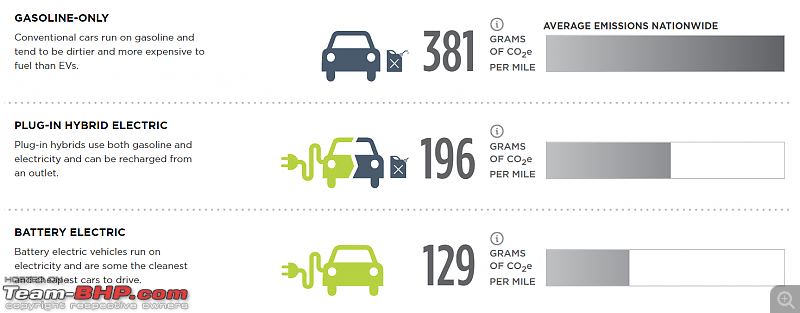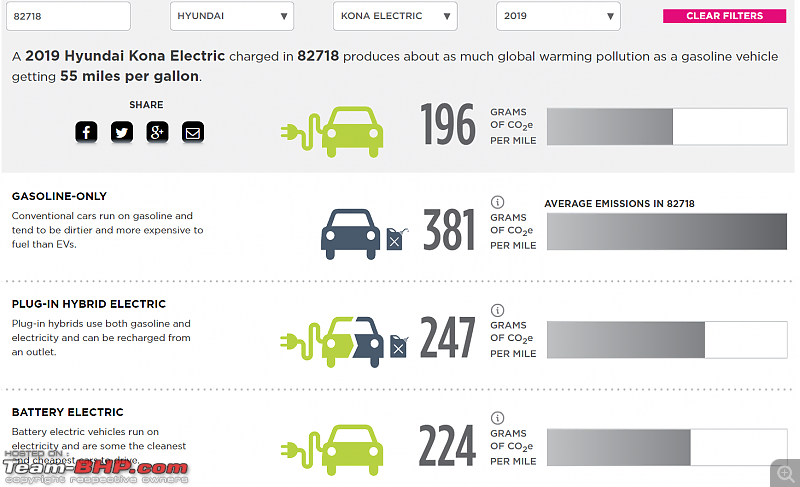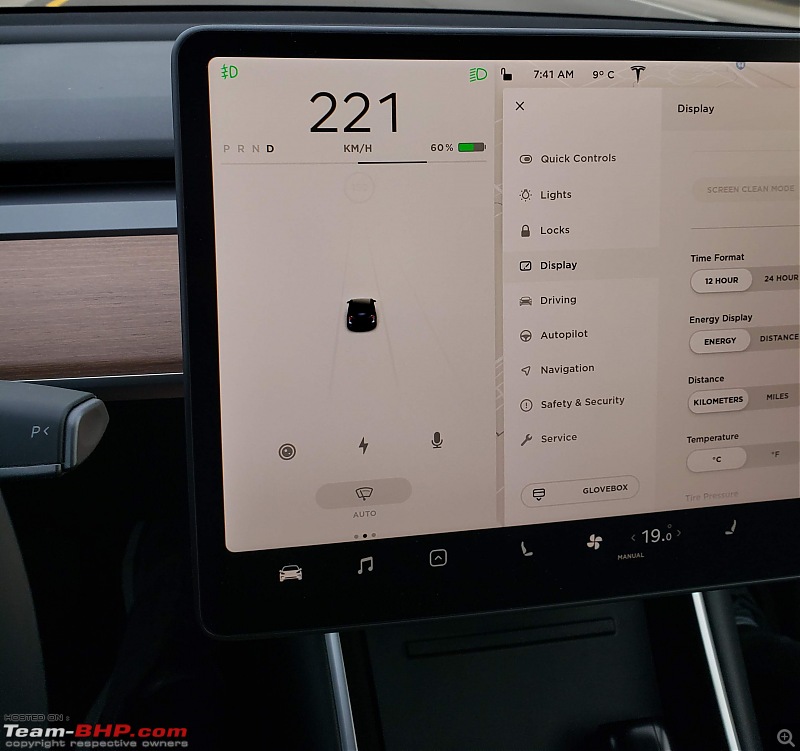Quote:
Originally Posted by sri_tesla  Thanks for bringing two important points or concerns about EVs. I will try to explain in detail.
1. Using coal power to charge EVs: Many people assume that EVs powered by coal power is as dirty as petrol cars. But that is not true. In fact even when EVs are only powered by coal power, they are still much cleaner than petrol cars.
|
All excellent points by Sri_tesla. A dirty grid + electric vehicle is still better than a dirty grid with gasoline (petrol). Diesel may have 10-15% lower CO2 footprint than petrol, but it comes with its own headaches such as higher NOxs and carbon particulates (carcinogen). Another common concern is battery life. Tesla has not had any major issues with battery life. Their spec is around 20% degradation after 8 years which is very conservative - see more below. Some Nissan leaf owners have encountered larger degradation. Leaf batteries are air cooled, which may be part of the problem. VW's upcoming MEB platform will also be liquid cooled, so it should be better. Battery life is only going to get better.
https://www.wired.com/story/tesla-ma...million-miles/
So what happens when the batteries are no longer suitable for mobility applications? I'm talking about a >30% degradation presumably after 15 years of use. Such batteries could find a second home for power grid stabilization (think mega scale UPS systems), which is becoming very critical to enable clean energy sources such as solar and wind. In such cases, energy density is secondary to cost as they will not be in a moving object (no dead weight to carry around). In other words, these batteries would not have to be discarded, but could go on for use for another 15-30 years for energy storage. The electric car as well as storage batteries will help suck up surplus energy generated during periods of sun or wind and reverse the flow when there is no sun or wind. As unstable clean sources become larger players, the load balancing role played by EVs and battery storage systems will become even more important.
Anecdotally, my experience with electric cars (here in the US) has been great. We have owned a Model S for almost 4 years and have not noticed any obvious range loss. Besides cooling, another factor to long life is to not charge to 100%. We typically keep it at 80%, except for those rare occasions we need to make a long trip. Cost of ownership is nil. We actually have free charging where we live (ok $50 per year!). There is no maintenance required. No oil changes, filters, spark plugs etc. The brakes will probably outlive the car (thanks to regen). So far, just wipers, tires and the ac filter.
For most of the year, our electric car uses as much electricity as our home! Both are around 500kwh per month (for the car, it corresponds to 1500-2000km/month), so the ability of the car battery to help the grid stabilize the loads should not be underestimated. In Germany, where much of their grid has converted to solar and wind, there are times when they actually give you money to take their surplus energy, as having too much surplus energy can damage the grid.
What is simply amazing is that Tesla has continued to improve range and efficiency of this car and decrease costs. We paid around $80,000 for this car in 2015 (after taxes and rebates). It has a range of around 385km. Not great (though with the supercharger network, no killer for long range travel). Today, for "just" $90,000 (after taxes and rebate) one can buy a new long range model that has almost 600km in range.
I love gasoline cars. In fact our other car is a VW Golf. It is very lightweight and it handles a lot better than the heavy Tesla. But electric cars will get lighter as energy density and efficiency improve. The best analogy I can give is when the German fighter ace Adolf Galland compared the old piston aircraft with the then new jet fighters which were being introduced to the Luftwaffe during WW2. Upon completing his test flight of the new jet, he was quoted as saying that he felt "It was as though angels were pushing" his aircraft. That is also a very apt statement for the transition to electric power. Silent but powerful!
 (17)
Thanks
(17)
Thanks
 (8)
Thanks
(8)
Thanks
 (2)
Thanks
(2)
Thanks

 (7)
Thanks
(7)
Thanks
 (10)
Thanks
(10)
Thanks

 (4)
Thanks
(4)
Thanks

 (2)
Thanks
(2)
Thanks
 (2)
Thanks
(2)
Thanks
 (1)
Thanks
(1)
Thanks




 This may look like 'self defeating' but they can provide peace of mind in a country like India when you are venturing out of town.
This may look like 'self defeating' but they can provide peace of mind in a country like India when you are venturing out of town. 




